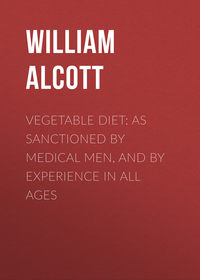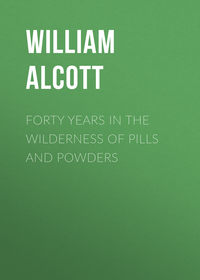
The Young Woman's Guide
And yet, if you examine closely the matter, you will find that much of all this is the result of circumstances. They possess, by inheritance, a happy temper—or they are in circumstances which make virtue easy to them.
But the spirit and genius of Christianity require a great deal more than mere inoffensiveness—though that is, of itself, certainly, a great deal. They require continual progress from glory to glory. But this progress can only be made amid self-denial and cross-taking. "Whoso taketh not up his cross," daily and hourly, is not a true disciple of the great Teacher. It is even through "much tribulation" only, that we can enter into the kingdom of our Lord and Saviour.
Now, to what self-denials, what tribulations, what taking up of the cross, do these easy, lovely families of which I am speaking, ever subject themselves? Trained happily, they are generally healthy—and therefore they have few trials from sickness. They live in the midst of abundance, and always have done so—abundance of food, clothing, &c., and of what they regard as of the best quality. They have more than heart can wish: their eyes, as it were, stand out with fatness. They know nothing of want: they know nothing even of inconvenience—except for some hapless moment, when a neighbor gets a little ahead of them in the fashion of their dress, their equipage, or their tables. Then a feeling of envy—peradventure a half expressed feeling of detraction—appears to mar, for a short time, their peace.
I have said that these inoffensive people—these do-no-harm Christians—know nothing of want. When and where have they cut themselves short of any thing to which they were lawfully entitled, for the sake of doing good to others? They have, indeed, performed works of charity and mercy, as much as other people of their own property and standing in society. But they have given, always, of their abundance. They have never so given as to impoverish the giver—so as to make themselves feel the least privation. They have visited the sick: but when has the time they have given, seriously incommoded them? Have they not had time enough left for their own purposes? Have they not, in this respect, given of their abundance? Perhaps they have clothed the poor, to some extent; but have they denied themselves to do it? Have not their closets, and houses, and the neighboring livery stable, been well furnished and supplied, notwithstanding? Have they not given, in this respect, wholly of their abundance—and not, like the good woman mentioned in the gospel, of their penury?
It is exceedingly painful, I say again, to find professedly good people among us living, as Watts calls it, at such a poor, dying rate; the professed disciples of a Master who became poor for their sakes, by giving up, not only the luxuries of life, but even many of its necessaries—and yet not giving up or denying themselves a single thing all their lives long.
Can such people expect to make advances in holiness—to grow in grace and in the knowledge of Christ—and yet not act like him, or follow him? For be it always remembered—the benefits of doing good are to those who do it, more than to those to whom it is done. This is the ordination and arrangement of Providence. "It is more blessed to give than to receive." How sad a mistake, then, is made by those who seem—from their conduct—to think there is little happiness in giving; and that their charities abridge, by so much, their happiness, instead of adding to it.
Young woman, should it be your lot to belong to one of these happy and excellent families—for I do not deny that they are among our best people, after all, though they are very far from having, as yet, come up to the self-denying, self-sacrificing spirit of the Lord that bought them, and become willing to be poor, and to suffer not a little want of time, money, &c. for even their own apparent necessities, temporal or spiritual—I say, if in the providence of God, you have been accustomed to see almost the whole time and labor of a family, with the avails of a handsome, or at least respectable property, used up year after year by that family, in eating, and drinking, and sleeping, and dressing comfortably—in mere passive enjoyment, in one word—while the blessedness of active enjoyment, in the doing of good to others, has been hardly known—be it yours to break the chain that binds this circle of selfishness, and go forth to the work of impoverishing yourself, as did your Lord and Master. Think not to make any considerable moral progress, otherwise! The soul must have food, as well as the body. This continual indulgence of the body, while the soul is unfed, or only fed just enough to keep it from starving, will never do for you. If you yield to the influence of this fashionable kind of excellence, and strive not to rise higher, I will not say that you will live to little purpose; but I will say, that you will have but very little of real, valuable, immortal life, till you pass beyond the bounds of time and space. Whereas, you ought to begin your heaven here. For "this is the will of God, even your sanctification;" and it was the prayer of Paul concerning some to whom he wrote—"The God of peace sanctify you wholly."
Will you not, then, O young woman! in view of these considerations, seek for deliverance from the spell that binds thousands and millions of otherwise good people to a narrow, selfish circle, in which they continually wander—coming round and round again, every night, to the same spot, or nearly the same, but making no considerable progress? Will you not study, and labor, and pray, for more and more of the spirit of Him, who not only stripped himself of every glory to which he, had been accustomed, but, instead of retaining that which was his divine right, deprived himself of every thing which is calculated to make life comfortable in the common sense of the term, and only sought his happiness in perfecting holiness in the fear of God, by living and dying for his brethren—the whole human family? Will you not henceforth study to be more and more conformed to the Divine image—and to act less and less in conformity with a world whose predominating motive to action, is selfishness?
1
A mother's kiss, in token of her approbation of some little pencil sketch, is believed by Benjamin West to have given the turn to his character—the character of a who said, and justly, that he painted for eternity. "That mother's kiss," he observes, "made me a painter."
2
Alexander Walker, the author of several British works connected with the subject of physical education and physical improvement.
3
Some persons object to the detail or such a scene of murder as this, even as an illustration of an important principle. They dislike to present such things to the youthful mind; and so do I. But it should be remembered that this book is not for mere children, but rather for young women; and is therefore less objectionable than if it were written for persons much younger.
4
A very small portion of chemical knowledge is sufficient to teach any person that the falling of a quantity of boiling oil or fat on any part of the body, will cause a deeper and more dangerous burn, than the same quantity of boiling water applied in the same manner; and consequently, will require very different treatment. Water boils at 212 degrees of Fahrenheit; oil at about 600.—I have entered minutely into this subject in my work entitled "The Mother in her Family" chapters xxiv. xxv. and xxvi
5
Nor can I wish to see young women trained to do the "buying and selling," instead of men, in order to give energy to their character; although I do not doubt that such a course is often successful. It is related by Mr. Ennis, a highly credible traveller that in Bali and Lombok, two islands lying eastward of Java, the females do all the buying and selling, even to the amount of thousands of dollars. "This probably gives" he says, "to the whole race of people a portion of that boldness and energy for which they are a little distinguished." But then, as he very honestly adds, it gives the women somewhat of a masculine character—a thing which should not by any means be encouraged.
6
See "Thoughts on Bathing." page 8.
7
I cannot refrain from saying, in this place, that since I wrote the above paragraph, I have received an excellent letter from a worthy minister of the gospel, on the subject of female dress which, besides greatly confirming the views I have expressed in this chapter, suggests the importance of having a standard dress devised—to be formed on Christian principles, and made fashionable by Christian example. If such a measure is desirable, it is yours, young women, to put it in operation.
8
During the present winter, the mercury in this vicinity has ranged, in one or two instances, as low as 14 or 16 degrees below zero; which is 112 or 114 degrees below the heat of the blood. In some parts of New England it has been 20 or 30 degrees below.
9
I mean, here, to speak only of those charities which go to correct the evils, which are in the world; for however great the good we may do in spending time and influence in correcting evil, the same amount of effort, rightly applied, must always do still more good in the way of prevention.
10
See the Young Wife, chap. xxxiii. p. 292.





